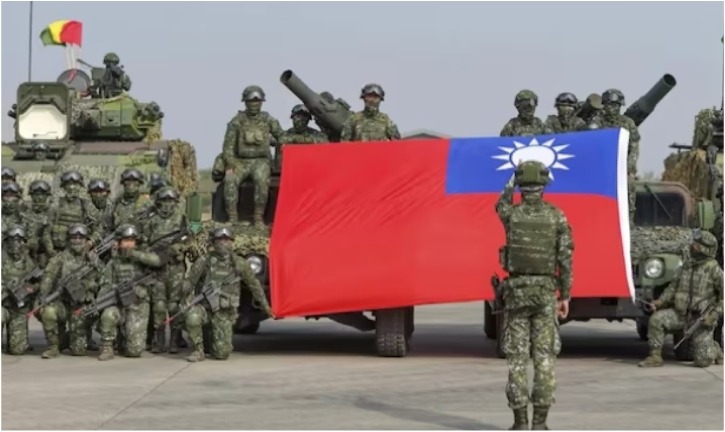
In a significant move, the U.S. President Joe Biden’s administration has granted approval for a military transfer to Taiwan under the Foreign Military Financing (FMF) program. This program, typically reserved for sovereign states, will allocate up to $80 million in FMF funds to bolster Taiwan’s self-defense capabilities. The administration’s decision is outlined in a notification sent to Congress.
This financial allocation aims to fortify Taiwan’s defense capabilities through the enhancement of joint defense mechanisms, augmented maritime domain awareness, and reinforced maritime security capabilities.
Taiwan’s defense ministry expressed gratitude for the support received, although it refrained from providing specific details about the aid. The ministry underlined that the United States has been consistently assisting in strengthening Taiwan’s combat capabilities within the framework of established policies and laws.
Initial reports about the U.S. aid package to Taiwan were brought to light by the Associated Press. Representative Michael McCaul, the Chairman of the House of Representatives Foreign Affairs Committee, lauded the administration’s decision to extend FMF support to Taiwan. McCaul emphasized that this assistance not only benefits Taiwan but also contributes to the security of regional democracies in the face of an increasingly assertive Chinese Communist Party (CCP). He highlighted the broader implications of this aid, including enhancing U.S. deterrence capabilities and strengthening national security.
The FMF program, overseen by the State Department, stands as the largest military assistance account. Its primary function involves offering grant assistance to foreign governments for the procurement of U.S. defense equipment and military training through the Foreign Military Sales program.
It’s important to note that this decision does not indicate a shift in U.S. policy but rather aligns with the ongoing support provided to Taiwan. Amid China’s claims of sovereignty over Taiwan, the island nation maintains its independent status and firmly believes in its right to determine its future course.
China, consistently critical of U.S. military aid and sales to Taiwan, continues to urge the U.S. to halt any form of military cooperation with the island. Despite this, the United States, a critical arms supplier to Taiwan, recently announced an arms aid package valued at up to $345 million. Additionally, in a move further solidifying their support, the U.S. approved the potential sale of infrared search and track systems for F-16 fighter jets and other equipment to Taiwan, with a price tag of $500 million.
This development underscores the geopolitical complexities of the region and highlights the intricate balance between regional security concerns, diplomatic relations, and defense cooperation.
